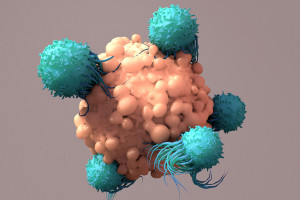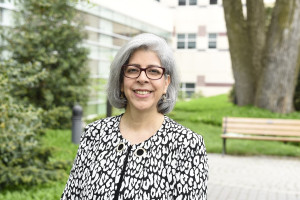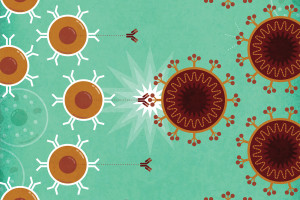Jefferson Just Received a $2M Grant to Expand Its Bioprocessing Institute
The grant will allow for a more than 40,000-square-foot addition to their biopharmaceutical and biologics education and training center.
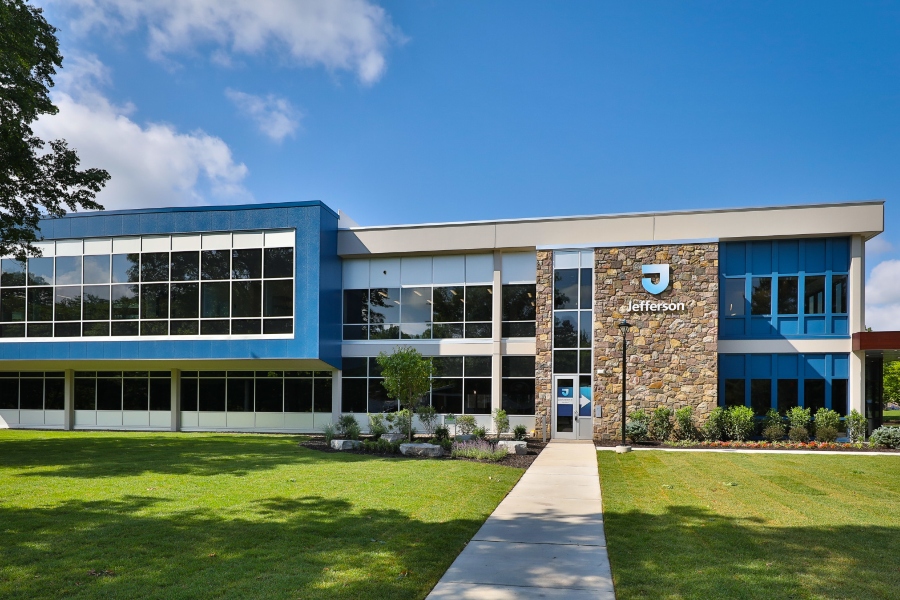
Jefferson Institute for Bioprocessing. Photograph courtesy Thomas Jefferson University
Philly is a major market for cell and gene therapy. According to a life sciences report issued last March, the region is home to 36 cell and gene companies, with approximately 4,900 total employees. With the field continuing to expand, the report projected that workforce to increase by up to 136 percent over the next 10 years.
This growth in cell and gene therapy, coupled with the continued need for novel healthcare technologies (especially amid the ongoing coronavirus pandemic), is what propelled Thomas Jefferson University to start planning the expansion of its Montgomery County-based education and training center, the Jefferson Institute for Bioprocessing (JIB), which seeks to provide customized training for those who work in process development and biomanufacturing of biologics and biopharmaceuticals. The project, which has been in the works for the past 12 to 18 months, has now been accelerated thanks to a recent $2 million grant from the commonwealth’s Redevelopment Assistance Capital program. The grant will allow for more than 40,000 square feet of additional academic and training space for those working to develop next-generation biologics, including vaccines and cell and gene therapies.
Parviz Shamlou, vice president and executive director of JIB, says the expansion will allow for increased workforce development. “Our current budget is for 25 people, which will double with the expansion,” he says. “Companies already in Philadelphia, as well as new companies that are investing in the region by building new facilities, are seeking talent and need to recruit people, and those people need training. That’s where JIB comes in.” With the funds, JIB will be able to provide even more workshops, hands-on education, and certificates for undergraduate and graduate students, as well as industry professionals.
The grant will also enable continued job and research opportunities for underrepresented groups in the biopharma industry and STEM field, according to JIB’s team. “We know that to meet the region’s vision and ambitious plan for biopharmaceuticals and biologics, companies must have access to a skilled workforce trained in commercialization of basic discoveries coming through research,” Shamlou says. “We are moving from good intention to positive action and implementation in the areas of inclusion and diversity.” In Jefferson’s master’s program in biopharmaceutical process engineering, seven of 11 students are students of color, notes Kathy Gallagher, executive vice president and chief operating officer at Thomas Jefferson University.
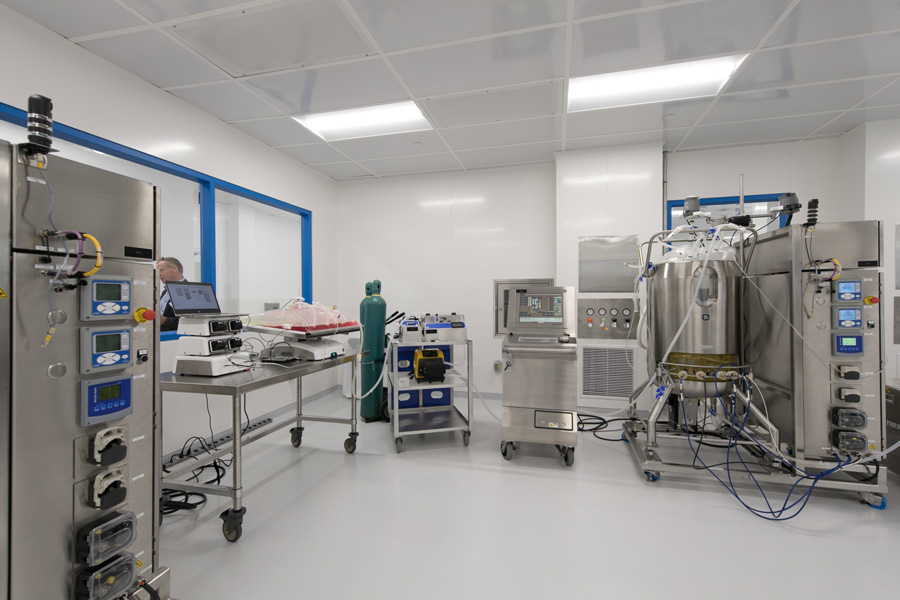
Inside the Jefferson Institute for Bioprocessing. Photograph courtesy Thomas Jefferson University
Additionally, Shamlou says the expansion directly benefits production capability, as the project includes 4,000 to 5,000 square feet of manufacturing space. According to Shamlou, that will support Jefferson researchers who are developing advanced therapies and vaccines by producing quantities of the new drug candidates needed for early- and mid-stage clinical testing. In this way, JIB can contribute to the fight against novel infectious diseases like COVID-19 — ventures that will transform the Philly area into what he calls the “Genome Valley.”
JIB formally opened its doors in 2019 and is, according to Jefferson, the first and only specialized education and training institute for biopharmaceutical processing in North America that combines commercial single-use processing equipment with the internationally recognized National Institute for Bioprocessing Research and Training curriculum. Jefferson anticipates JIB’s expansion to be completed by August 2022.

Philadelphia magazine is one of more than 20 news organizations producing Broke in Philly, a collaborative reporting project on solutions to poverty and economic mobility in the city. Read all our reporting here.
